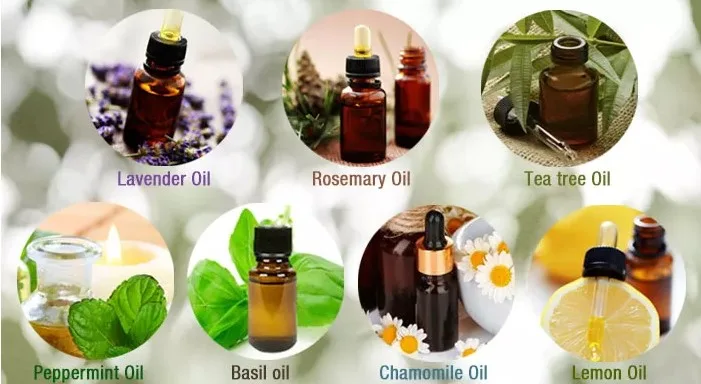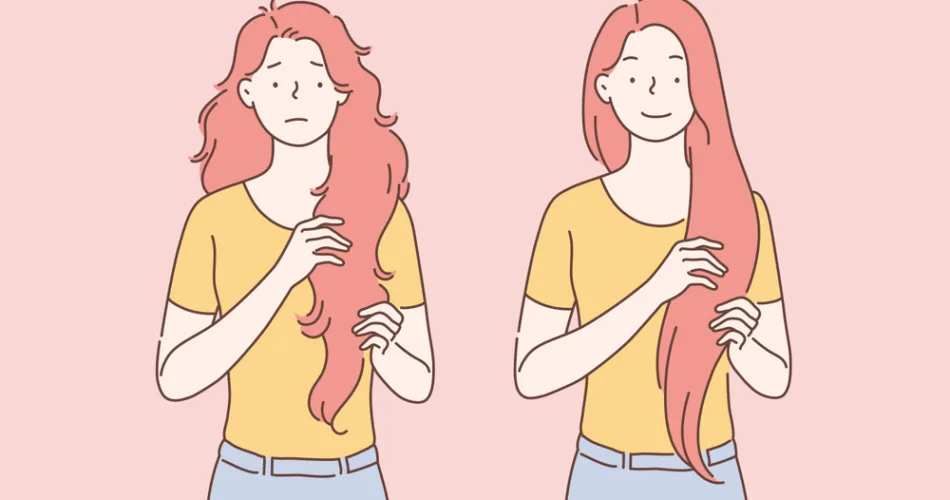Hair-related issues can often be confusing, with various factors contributing to their occurrence. While many individuals seek quick fixes, understanding the hidden causes and adopting holistic cures can lead to long-lasting solutions. In this exploration, we’ll delve into the concealed triggers behind common hair problems and discover natural remedies for healthier, more vibrant locks. Understanding the hidden causes of hair problems and embracing holistic cures can lead to more sustainable solutions. Hair is a non-essential tissue, and as such, it is often one of the first areas affected when the body lacks essential nutrients. By addressing nutritional deficiencies, hormonal imbalances, and adopting natural remedies, individuals can promote healthier.

Hidden Causes:
-
Nutritional Deficiencies:
Lack of essential vitamins and minerals, such as biotin, iron, and zinc, can lead to hair problems like excessive shedding and dullness. A balanced diet with nutrient-rich foods is crucial for maintaining healthy hair. To prevent nutritional deficiencies and promote optimal hair health, it is crucial to maintain a balanced and varied diet, ensuring an adequate intake of essential vitamins, minerals, and nutrients.
- Biotin, a water-soluble B-vitamin, is often associated with promoting healthy hair, skin, and nails. Biotin deficiency can lead to hair thinning and brittle hair shafts. Including biotin-rich foods such as eggs, nuts, and leafy greens in the diet can help address this deficiency.
- Zinc is a mineral that plays a crucial role in hair tissue growth and repair. A deficiency in zinc can lead to hair shedding and slow regrowth. Incorporating zinc-rich foods like red meat, poultry, and legumes can help combat this deficiency.
- Iron deficiency, known as anemia, can result in hair loss as it affects the blood supply to the hair follicles. Insufficient iron levels hinder the proper oxygenation and nutrient delivery to the hair roots, leading to weakened and thinning hair.
Hormonal Imbalances:
Hormonal fluctuations, especially during pregnancy, menopause, or conditions like polycystic ovary syndrome (PCOS), can contribute to hair thinning and loss. Addressing hormonal imbalances through lifestyle changes or medical interventions can help restore hair health. Hormonal imbalances can significantly impact the health and appearance of hair, leading to a variety of issues such as excessive hair loss, thinning, and changes in texture. The complicated relationship between hormones plays a crucial role in maintaining the normal growth cycle of hair follicles. When this fragile balance is disrupted, it can result in noticeable changes in the hair. Thyroid hormones, including thyroxin (T4) and Triiodothyronine (T3), also play a crucial role in regulating hair growth. Both an overactive thyroid (hyperthyroidism) and an underactive thyroid (hypothyroidism) can lead to hair-related issues. In hyperthyroidism, excess thyroid hormones can cause hair to become fine and brittle, while hypothyroidism may result in hair loss and changes in texture. In both men and women, an excess of DHT can lead to the efficiency of hair follicles, causing them to produce thinner and shorter hairs. This process is commonly observed in conditions like androgenetic alopecia, or pattern baldness, where genetically predisposed individuals are more at risk to hormonal influences on their hair.
Stress and Anxiety:
Stress and anxiety are common aspects of modern life, affecting individuals on various levels – physically, mentally, and emotionally. Stress is the body’s natural response to challenging situations, triggering a “fight or flight” response. Anxiety, on the other hand, is a persistent and excessive worry about future events. Both stress and anxiety can manifest in numerous ways, affecting not only mental health but also physical health. Chronic stress can disturb the hair growth cycle, leading to increased shedding and weakened strands. Incorporating stress-management techniques, such as meditation or yoga, can positively impact hair health. The relationship between stress, anxiety, and hair loss is a complicated one, involving hormonal imbalances, inflammation, and oxidative stress. As our understanding of these connections grows, so does the importance of adopting effective stress management strategies to alleviate the impact on both mental well-being and physical appearance.

Harsh Hair Care Practices:
Overuse of heated styling tools, chemical treatments, and tight hairstyles can damage the hair shaft and lead to breakage. Adopting gentler hair care practices and minimizing exposure to damaging elements can prevent further harm. Certain hair care products contain harsh chemicals, such as sulfates and parabens, which can strip the hair of its natural oils and lead to dryness. Individuals should opt for sulfate-free and natural ingredient-based products to maintain the hair’s health and moisture balance. Awareness of harmful hair care practices is the first step towards promoting healthier habits. Choosing gentle styling methods, and being conscious of the environmental and cultural impact, individuals can contribute to a more sustainable and respectful approach to hair care. Ultimately, prioritizing hair health over damaging trends will lead to stronger, more vibrant locks and a positive impact on the broader beauty landscape.
Holistic Cures:
-
Balanced Nutrition:
Ensuring a well-rounded diet that includes fruits, vegetables, lean proteins, and whole grains provides the necessary nutrients for hair health. Additionally, supplements like biotin can be considered under the guidance of a healthcare professional.
-
1.Biotin:
Biotin, also known as vitamin B7, is crucial for hair growth. Eggs, nuts, whole grains, and avocados are good sources of biotin. However, consult a healthcare professional before taking biotin supplements. -
2. Zinc:
Zinc plays a role in hair tissue growth and repair. Include zinc-rich foods like lean meats, dairy products, nuts, and whole grains in your diet. -
3.Hydration:
Staying well-hydrated is essential for overall health, including hair health. Water helps to keep your hair and scalp hydrated, preventing dryness and brittleness. -
4.Protein:
Hair is primarily composed of a protein called keratin, so it's essential to ensure an adequate protein intake. Include sources like lean meats, fish, eggs, dairy products, legumes, and nuts in your diet.
Scalp Massage and Essential Oils:
Regular scalp massages stimulate blood flow, promoting hair growth. Using essential oils like lavender, rosemary, and peppermint can enhance the massage’s effectiveness and contribute to a healthier scalp. Scalp massage and essential oils have emerged as a dynamic duo, offering a natural and rejuvenating solution for promoting hair growth. Scalp massage helps in reducing stress, by promoting relaxation; it helps regulate hormone levels, preventing the release of stress-related substances that could negatively impact hair growth. Several essential oils have been recognized for their ability to support hair growth. Some of the most notable ones include:
-
Rosemary Oil:
Known for its anti-inflammatory and antioxidant properties, rosemary oil stimulates blood circulation in the scalp, promoting hair growth. -
Lavender Oil:
Renowned for its calming scent, lavender oil also has antimicrobial properties that can help maintain a healthy scalp environment, conducive to hair growth. -
Peppermint Oil:
The menthol in peppermint oil has a cooling effect, stimulating blood flow to the hair follicles and potentially promoting hair growth. -
Tea Tree Oil:
With its antifungal and antibacterial properties, tea tree oil helps keep the scalp free from infections, creating an optimal environment for hair growth.

Herbal Remedies:
Herbs like aloe Vera, coconut oil, and olive oil have properties that can benefit hair health. Incorporating herbal treatments, such as applying aloe Vera gel to the scalp or rinsing with green tea, can nourish and strengthen the hair. Here are some herbal remedies that are commonly believed to promote hair growth. It’s important to note that while these remedies have been used traditionally, individual results may be different. Aloe Vera, known for its soothing and moisturizing qualities, Remember to perform a patch test before using any new remedy to ensure that you don’t have an allergic reaction.
- Aloe Vera Remedy
Ingredients:
Regular scalp massages stimulate blood flow, promoting hair growth. Using essential oils like lavender, rosemary, and peppermint can enhance the massage’s effectiveness and contribute to a healthier scalp. Scalp massage and essential oils have emerged as a dynamic duo, offering a natural and rejuvenating solution for promoting hair growth. Scalp massage helps in reducing stress, by promoting relaxation; it helps regulate hormone levels, preventing the release of stress-related substances that could negatively impact hair growth. Several essential oils have been recognized for their ability to support hair growth. Some of the most notable ones include:
- Fresh Aloe Vera gel - 2 tablespoons
- Coconut oil - 1 tablespoon
- Olive oil - 1 tablespoon
- Rosemary essential oil - 5 drops (optional)
Instructions and Application Process:
- Cut a mature Aloe Vera leaf from the plant.
- Extract 2 tablespoons of fresh Aloe Vera gel by slicing open the leaf and scooping out the transparent gel using a spoon.
- In a small bowl, mix the Aloe Vera gel with 1 tablespoon each of coconut oil and olive oil.
- If you desire a pleasant fragrance and additional benefits, add 5 drops of rosemary essential oil to the mixture. Blend the ingredients well until you achieve a smooth and consistent mixture.
- Before applying the remedy, ensure your hair is clean and damp.
- Section your hair and apply the Aloe Vera mixture from roots to tips, massaging gently into the scalp.
- Cover your hair with a shower cap or a warm towel to allow the nutrients to penetrate effectively.
- Leave the Aloe Vera remedy on your hair for at least 30 minutes to an hour, allowing the ingredients to nourish your scalp and hair follicles.
- After the recommended time, rinse your hair thoroughly with lukewarm water.
- Follow up with a mild, sulfate-free shampoo to remove any residue. Regular use can contribute to stronger and more vibrant hair. Say goodbye to chemical products and embrace the power of nature for beautiful locks.


